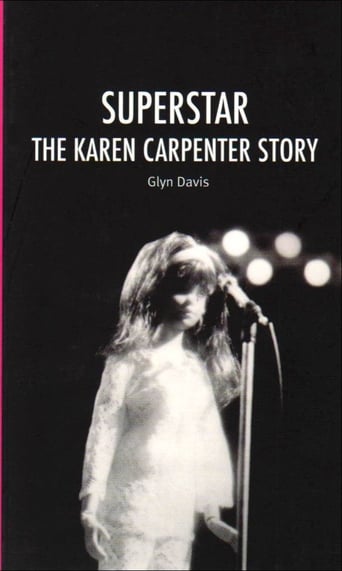leone_glembay
This is a very charming debut by Todd Haynes, signaling his talent, but it is also understandably raw. The approach is the most fascinating thing here. Having dolls instead of real actors, but filming it as if were made by cameras of the 70's works great. Thus acting is nonexistent, but the conversations are not lacking in spark. In the dramatical context, the minimalistic approach is spot on, but the actual dialogues are too banal for my liking. Also, the messages about anorexia nervosa are not subtle enough, so it sometimes feels like we are in a commercial. Even though I found several significant flaws, I enjoyed the movie on a substantial level. At the end of the day, it is a very original idea, but perhaps not done to its full potential. It is as if the director was 'too nice' to make something even greater, somehow reminding us of the Carpenters themselves.
SnakesOnAnAfricanPlain
I grew up listening to The Carpenters, and they are one of the few bands I can still listen to. Their music was always honest and calm. Relaxing, yet emotional. Haynes is also one of the most brilliant men working in cinema, so I simply had to see this illegal film. Haynes takes himself completely out of he film. It doesn't try and elevate Karen to some kind of martyrdom, nor does it manipulate and tug at the heartstrings. Instead, it goes for a very realistic feel, despite being "acted" by Barbie Dolls. Perhaps these dolls allowed Haynes to simply tell a story without judging those involved. It avoids blaming people or any of the other clichés biopics usually deliver. It isn't fact, it isn't fiction, it's somewhere in-between. A lost classic.
Michael Neumann
There's a certain brilliance behind the idea of using Barbie dolls to recount the story of singer Karen Carpenter, and the exchange of one plastic all-American icon with another results in an oddly respectful (if suitably macabre) show-biz biography, flirting at times with campy irreverence without ever becoming vulgar. By reducing Carpenter's tragic life to dollhouse proportions the film transforms it into a miniature image of the American Dream gone sour, carrying all the morbid fascination of a tabloid celebrity exposé. But this isn't a memorial to (or a mockery of) the singer's life and musical career; it's an artfully made, near-satirical reflection of how numb and destructive American values had become during the 1970s.I was lucky to catch a rare theatrical screening (at the York Theater in San Francisco) in the summer of 1988, three years before the film was banned for its unauthorized use of copyrighted music.
Charles Herold (cherold)
In New York in the 1980s I recall there were always these low-budget short art films floating around, shown in clubs or bars to audiences who all dressed in black and didn't own televisions. Superstar is reminiscent of the movies I saw back then, although it's somewhat more focused and coherent than most of them.Using Barbie dolls to play real people is an interesting device that works to some extent. The movie has a well meaning concern with anorexia, and tries to explain, a little bit, what it is and how it happens.On the other hand, the movie has, like most art films, a lot of pretentious, random shots (in this case of holocaust victims and spanking) and the movie seems to have an ax to grind with Richard Carpenter; he is portrayed as domineering and unsympathetic and it is implied, for no reason that I can see, that he is gay. (On the other hand, the movie ignores his drug problems.) But the real problem with the movie is it's not all that interesting. The story itself is somewhat interesting, but 45 minutes is a long time to spend with bland Barbie dolls and the movie's lack of conventional movie devices such as character development just illustrate why art films never do well beyond a niche audience who so hates Hollywood that they fall in love with any movie that purposely flouts film conventions.The irony is that the thing that powers the movie and keeps it from being completely painful is the most movie-conventional quality, the wall-to-wall Carpenters sound track.



